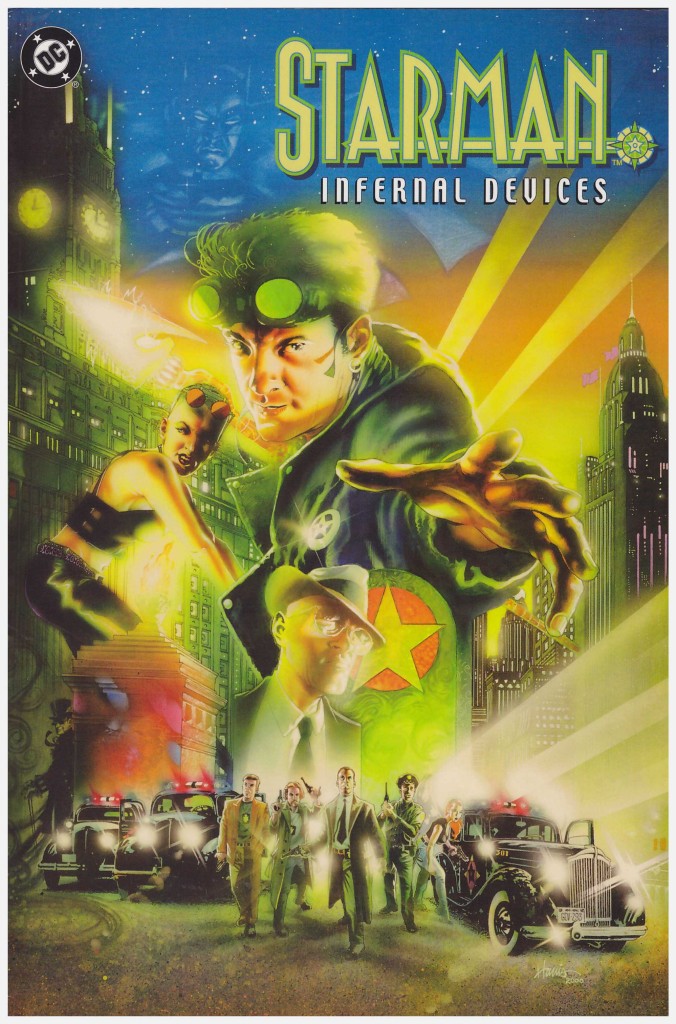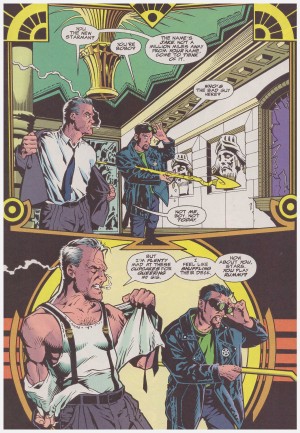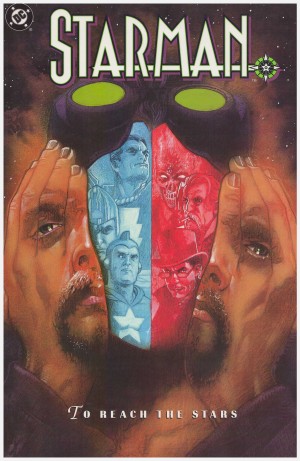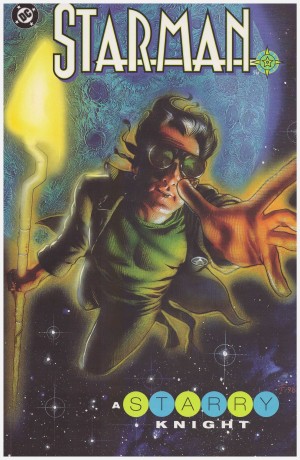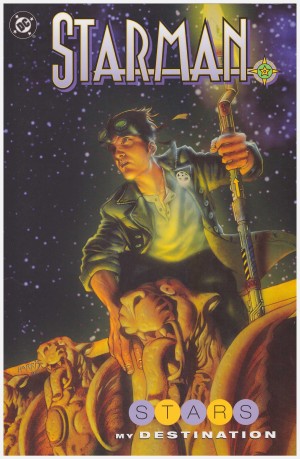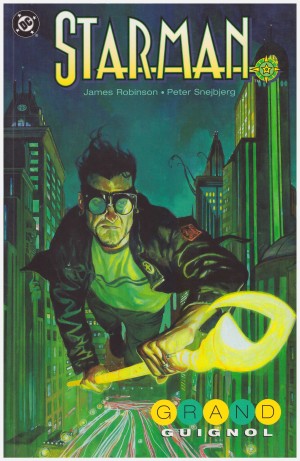Review by Frank Plowright
Some of the material presented in Infernal Devices rates among the best of the series. The storytelling is ambitious and accomplished, a quantum jump from traditional superhero comics, yet those who consider James Robinson’s writing self-indulgent and meandering also have their ammunition here.
Starting with that, there’s the entirely gratuitous offing of a number of characters then superfluous to requirement, a strained comparison of the earliest superheroes with astronauts, or a pretentious diatribe, admittedly undercut, about original recordings. At this stage of the series overall it’s often difficult to tell whether the irritating aspects of Jack Knight’s character are deliberate, or the author’s voice extending too far. To stress these occasional misfires, though, when there’s so much to enjoy, is to go beyond the call of duty in finding fault. Counteracting those moments, for instance, we have a fantastic meander through the current realm of an even more obscure bunch of characters, an enjoyably daft scene of a villain buying collectible transistor radios and a beautifully touching letter from Dian Belmont whom Jack met in A Wicked Inclination.
The key to Starman’s enjoyability is tight characterisation, and constant surprises, one of which opens the book and delivers quite the stab to the heart. It also exemplifies another string to Robinson’s bow, the manner in which the most important material is buried in otherwise trivial goings on. The focus of that chapter is Bobo Benetti, a rather wistful old style Rat Pack wanna-be criminal just released from jail. He’s deciding whether or not to return immediately to a life of crime while wandering Opal City to see what it’s become in his absence.
The infernal devices of the title are created by one Doctor Pip, an engineer with a grudge who detonates bombs in crowded places to kill people. His machinations occur among much else, until becoming the focus and seguing into a tale of Solomon Grundy, another of Robinson’s reclamation projects, the inconsistencies in his character here explained.
While he still draws the majority of the pages, there’s noticeably less art from Tony Harris, although he’s as good as ever, with the varied styles on his final chapter here a particular highlight. Steve Yeowell and Mark Buckingham are fine substitutes, both with an instinctive sense of storytelling, but a young Dusty Abell, then still not having found his style, doesn’t match the quality of the remaining pages.
Most of this book is collected in Starman Omnibus volume 3, with the Bobo Benetti chapter in volume two, but it’s here that the Omnibus books begin to represent better value. It may be more costly, but the Omnibus collects an admittedly inessential issue omitted here featuring the Will Payton Starman, and more importantly an entire four chapter Shade miniseries, referenced here and otherwise unavailable beyond the original comics.
The next collection is To Reach the Stars.
